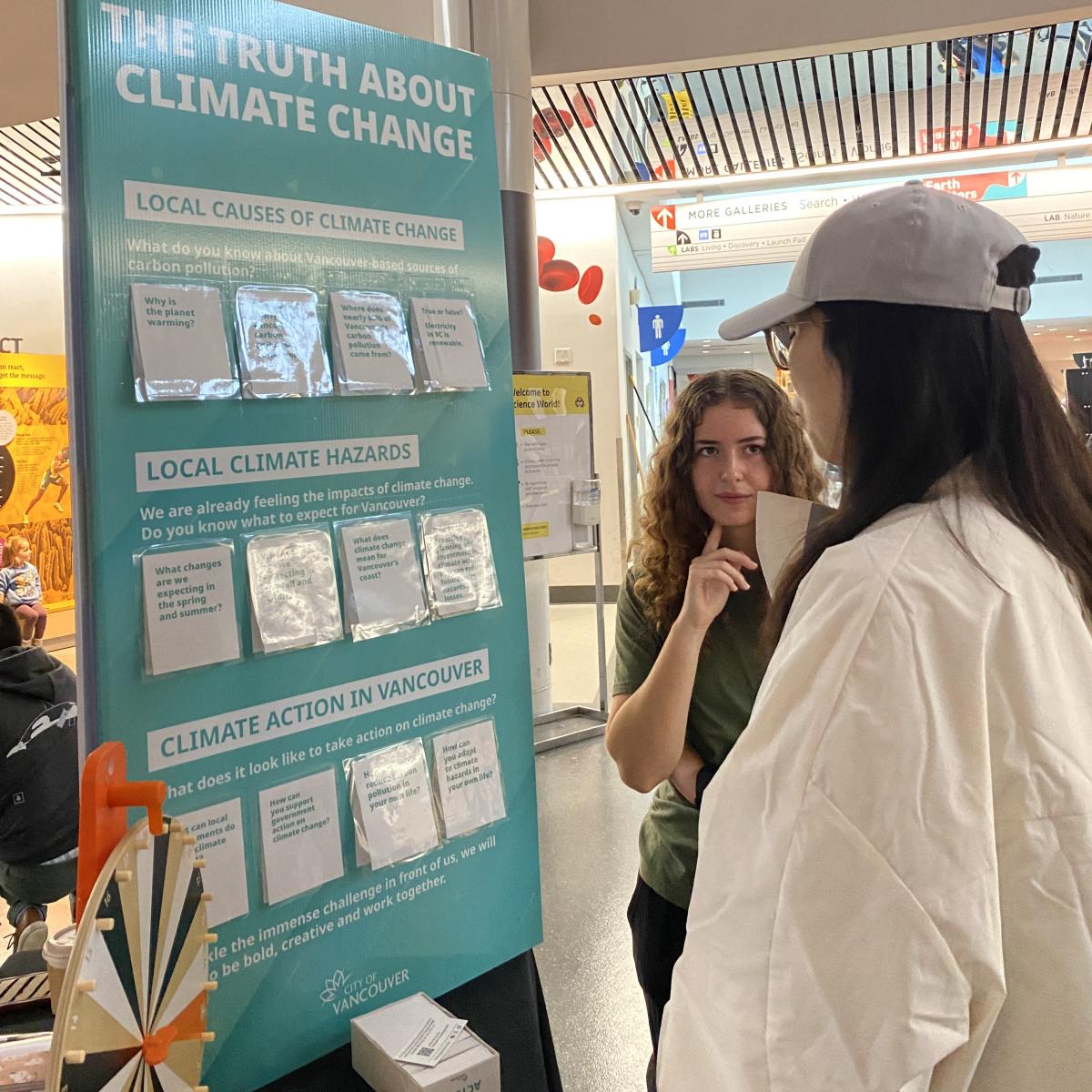
With B.C. experiencing more intense summers, harsher droughts, and extreme rainfall events, Olivia Moore – undergraduate International Relations student – sums it up: “Right now, we are experiencing a climate crisis.”
Olivia is one of many students in the UBC Sustainability Ambassadors Program, an experiential learning program where students get the chance to develop their sustainability competencies and leadership skills.
One project, in partnership with the City of Vancouver, is a roadshow climate literacy booth, visiting several local community centres and events. The booth helps inform the public about local climate change causes, hazards, and solutions.
Their latest stop—Science World.
Nodding in awe
Between the spinning rock-climbing walls and booming live demonstrations, it can be hard for a well-intentioned booth, neatly organized on a six-foot table, to catch barely more than a glance from visitors.
But with the help of an interactive spin-the-wheel climate trivia game, the Ambassadors soon found themselves striking up conversations, and highlighting the colourful tri-pillar featuring key climate information.
Young kids nodded in awe as they learnt that simple habits like walking to school can help the planet. Parents joined in as their children were occupied with colouring sheets, learning how changes to their lifestyles and our surrounding infrastructure can help reduce carbon pollution.
For instance, Anna, another Sustainability Ambassador, emphasized how, “really investing and improving public transportation is actually a big climate action.”
From a practical standpoint, “it helps more people [to] be able to get where they need to go without using a car,” she explains. TransLink report how 229kg of carbon emissions can be evaded if just 100 people take the SkyTrain or electric bus.
The conversations weren’t just a one-sided exchange, either. Kids talked at length about their knowledge of the atmosphere; adults working and studying in fields related to sustainability were eager to discuss.
One thing was clear: people of all ages recognized the importance of the climate emergency.
Applying a local lens to identify the root causes
Being aware of what contributes to carbon emissions on a local level helps us identify the root causes of climate change. Caelin, a Sustainability Ambassador studying Environmental Engineering, outlines one major activity: “A lot of emissions in Vancouver stem from heating and cooling buildings.”
Thinking about the subsequent climate change hazards—such as poor air quality and rising sea levels—may be overwhelming, but, together, these two factors tell us what we can do to mitigate and adapt to these challenges.
Ultimately, the Ambassadors want people to realize that taking climate action requires systemic change.

Whether it is by taking advantage of the supports the City of Vancouver has offered for people to switch to heat pumps, supporting climate-focused organizations and business, or sharing climate facts and solutions with their own networks, everyone must, and can, play a part.
As Caelin puts it, taking climate action includes, “learning and being open to new ideas and new solutions, and pushing boundaries.”
The UBC Sustainability Ambassadors will be holding a climate literacy booth almost every week this fall and will be returning to Science World on November 24th from 10am to 2pm.
They will also be at Hillcrest Community Centre on November 16th from 10am to 2pm and Kensington Community Centre on December 7th from 11am to 3pm.